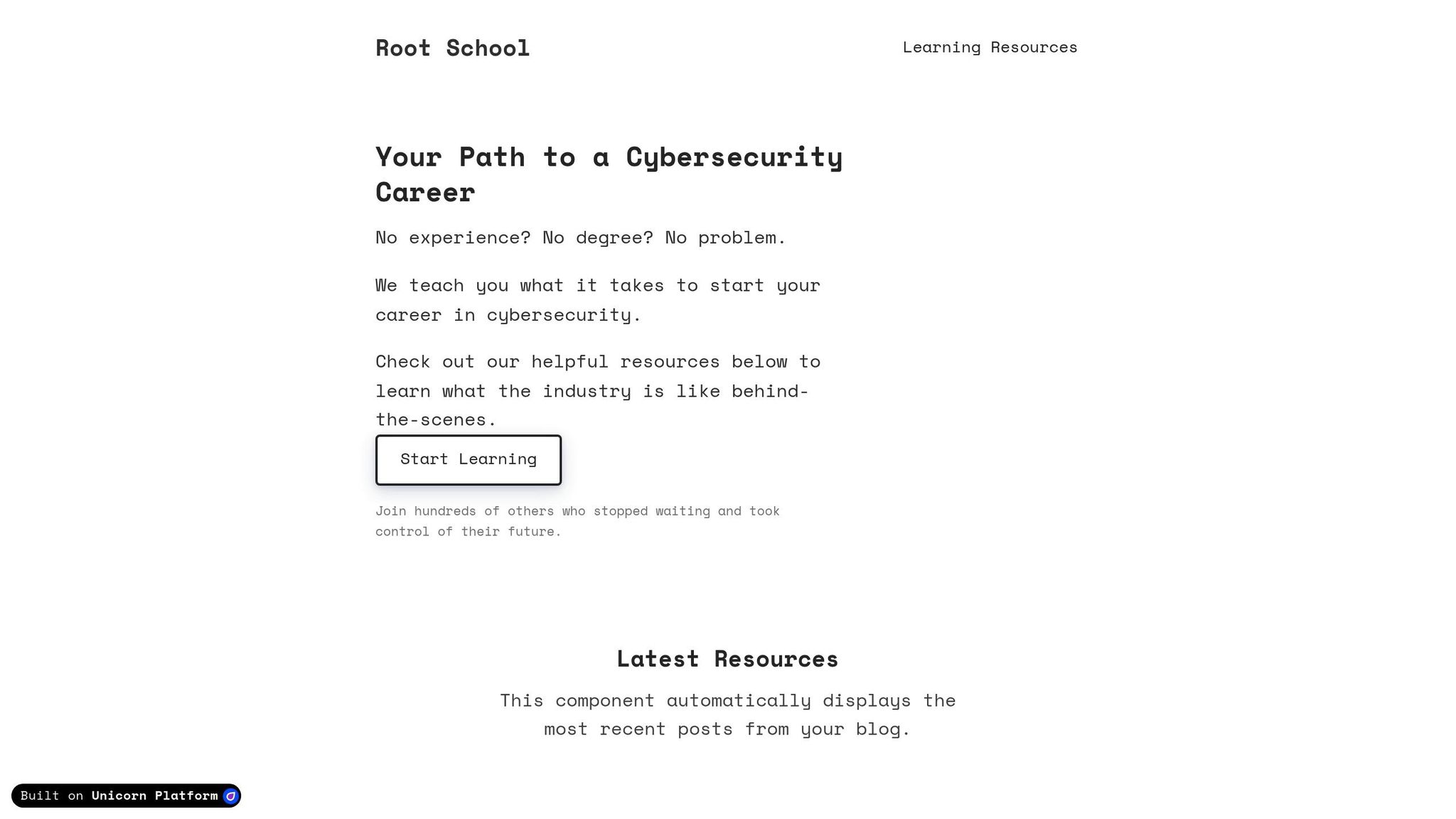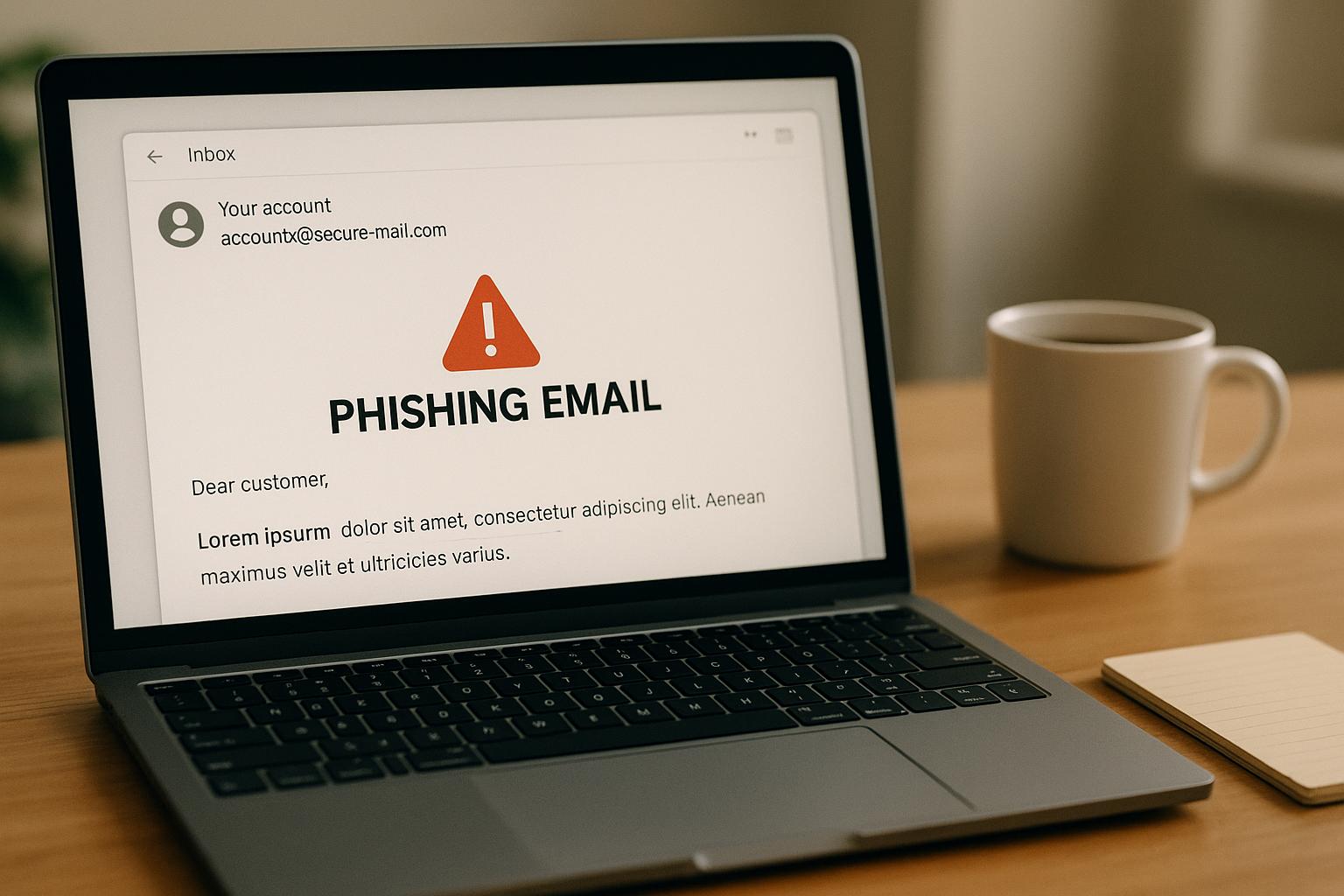Breaking into cybersecurity is hard, even with a talent shortage. Despite over 514,000 U.S. job openings in 2025, many entry-level roles list excessive requirements. Here’s why and how to overcome it:
- Mismatch in job titles and qualifications: "Entry-level" roles often ask for 3+ years of experience or advanced certifications like CISSP, which require years of work.
- Unrealistic expectations: Many postings bundle unrelated skills or demand proficiency in tools and areas typically reserved for seasoned professionals.
- Lack of practical skills: Employers value hands-on experience with tools like SIEM or EDR, but most candidates lack exposure from traditional education programs.
Solutions:
- Focus on beginner-friendly certifications: Start with CompTIA Security+, Network+, or CEH.
- Build hands-on experience: Use labs, participate in Capture-the-Flag (CTF) events, or contribute to open-source projects.
- Consider feeder roles: IT support or system administration can pave the way to cybersecurity positions.
- Leverage internships and apprenticeships: These provide experience and networking opportunities.
- Tailor your resume and interview skills: Highlight relevant projects, certifications, and your ability to learn quickly.
With persistence and targeted efforts, landing your first cybersecurity role is achievable. Keep learning, apply broadly, and network actively.
Why Are People Not Finding ENTRY LEVEL Cybersecurity Jobs ?
Unrealistic Job Requirements for Entry-Level Positions
Breaking into the cybersecurity field can feel like an uphill battle, especially when "entry-level" job postings often list requirements that seem more suited for seasoned professionals. This disconnect creates a significant hurdle for newcomers eager to start their careers.
Experience and Certification Mismatches
A recurring frustration in cybersecurity job postings is the demand for years of experience - yes, even for entry-level roles. This creates a classic catch-22: you need experience to land a job, but you need a job to gain that experience.
Adding to the challenge, certifications like the CISSP are frequently listed as requirements for junior positions. The problem? The CISSP isn’t designed for beginners - it requires five years of paid cybersecurity experience to qualify for the exam.
Some postings also bundle unrelated and highly specialized skills into a single role. For instance, an entry-level position might expect expertise in digital forensics, penetration testing, and network security - areas that typically take years of focused work to master.
Take, for example, a "Cybersecurity Operations Analyst" job listing. It might demand a CISSP and advanced digital forensics skills, but the actual day-to-day work involves routine tasks like traffic monitoring and tweaking security settings. These inflated expectations often disqualify capable candidates who could excel at the real responsibilities of the job.
Why Employers Set These Requirements
So, why do companies set the bar so high for roles that should be beginner-friendly? A big part of the issue lies in the way job descriptions are created. Some companies rely on generic templates or fail to consult technical teams, resulting in a mismatch between the listed qualifications and the actual job needs.
In some cases, employers aim to "future-proof" their workforce, listing skills that might only be needed occasionally or in the future. Others are responding to broader industry challenges. A 2024 SANS and GIAC survey of 3,400 cybersecurity professionals found that 52% of organizations identified "not having the right staff" as their top challenge, while 48% pointed to "not having enough staff". Similarly, a 2024 ISACA survey revealed that 57% of organizations reported being understaffed, yet hiring has slowed, and requirements have become more rigid.
Practical Solutions for Job Seekers
Facing these challenges, job seekers need to be strategic. Start by targeting roles with realistic expectations. Avoid positions that demand years of experience or certifications like the CISSP, which are impractical for newcomers.
Instead, focus on positions that value foundational certifications such as CompTIA Security+, CompTIA Network+, or Certified Ethical Hacker (CEH). These credentials are specifically designed for individuals with limited professional experience. The National Initiative for Cybersecurity Careers and Studies (NICCS) also offers a list of about 30 beginner-friendly certifications worth exploring.
Building a project portfolio can also help you stand out. Hands-on experience through cybersecurity challenges, open-source contributions, or lab projects can showcase your skills and demonstrate your ability to handle real-world scenarios.
Seek out companies that partner with educational institutions or offer structured training programs. These organizations are more likely to recognize potential and provide the support needed to help you grow into the role.
Lastly, don’t be discouraged by job descriptions that seem overwhelming. Many successful candidates apply to roles where they meet only 60–70% of the qualifications. Highlight your transferable skills and emphasize your eagerness to learn and adapt.
Resources like Root School can be invaluable in this journey, offering targeted training and career guidance tailored to aspiring cybersecurity professionals.
Closing the Skills and Knowledge Gap
To tackle inflated job requirements in cybersecurity, it’s essential to develop both technical know-how and interpersonal abilities. While degrees and certifications are often prerequisites, they don’t always prepare candidates for the practical challenges of the workplace. This mismatch between academic knowledge and the demands of real-world cybersecurity creates a tough barrier for those entering the field.
Common Technical Skill Gaps
Many entry-level candidates lack hands-on experience with essential cybersecurity tools. For instance, tools like SIEM systems, firewalls, and vulnerability scanners - critical for day-to-day tasks - are often unfamiliar to newcomers.
Additionally, while many understand networking concepts, applying encryption techniques, security protocols, or system integrations in real-world settings can be a struggle. Modern roles now require familiarity with advanced tools like EDR, XDR, SOAR, and cloud-native security platforms - areas that traditional academic programs rarely address. Entry-level positions are also shifting toward specialized fields such as threat hunting, detection engineering, incident response, digital forensics, cloud security, and GRC (Governance, Risk, and Compliance).
Addressing these gaps requires a focused approach to skill-building.
Building Practical Skills
Bridging technical gaps involves a mix of structured learning and hands-on practice. Earning certifications like CompTIA Security+, Certified Ethical Hacker (CEH), or CISSP Associate can validate your foundational knowledge and showcase your commitment to professional growth.
Practical experience is equally important. Online labs and training platforms provide opportunities to work on real-world scenarios without needing prior job experience. For example, Root School offers targeted labs and courses, such as the "Complete Guide to Ethical Hacking with Metasploit" and the "Complete Cloud Cybersecurity Roadmap for Beginners", which help translate theoretical knowledge into practical skills.
You can also gain experience by contributing to open-source projects, participating in cybersecurity competitions or capture-the-flag (CTF) events, or taking on internships and volunteer roles. These activities not only build your portfolio but also expand your professional network.
However, technical skills alone won’t get you far without strong interpersonal abilities.
Improving Soft Skills
Technical proficiency is just part of the equation. Communication, teamwork, and problem-solving are equally important for success. Whether it’s explaining complex security issues to non-technical colleagues or collaborating across teams, these skills are essential. Clear communication is especially critical when documenting security incidents or providing training on best practices.
Improving soft skills takes deliberate effort. Joining group projects, participating in cybersecurity clubs or online communities, and practicing technical presentations can sharpen your communication and teamwork abilities. Seeking feedback from mentors or peers - or using resources like Root School - can also provide valuable guidance for growth.
With a global shortage of 4.8 million cybersecurity professionals projected in 2024 and U.S. cybersecurity jobs growing 267% faster than the national average, the demand for skilled professionals far exceeds the supply. To stand out in this fast-paced field, you’ll need a strong mix of technical expertise and the practical, interpersonal skills gained through continuous learning and hands-on experience.
sbb-itb-8a31326
Finding More Job Opportunities
As the demand for cybersecurity talent remains strong, companies are shifting their hiring strategies. Instead of focusing on large-scale recruitment, they’re zeroing in on candidates with specialized, hands-on skills. In fact, 52% of cybersecurity professionals cite "not having the right staff" as their biggest hurdle.
This shift has made traditional entry-level roles harder to come by, which means finding alternative ways into the field is more important than ever. Let’s explore some of these nontraditional pathways.
Using Feeder Positions
Feeder positions are a great way to build the technical skills needed for cybersecurity. Roles like IT support or help desk jobs give you experience managing user accounts, troubleshooting technical issues, and working with security tools. Similarly, network and system administration roles teach you how to manage systems and secure infrastructure - skills that are directly relevant to cybersecurity jobs.
Once you’re in an organization, internal referrals and promotions can often be easier to land than external job applications. Volunteering for security-related projects or shadowing cybersecurity teams shows your interest and can help you transition into a security-focused role. This approach not only builds your skills but also addresses the challenge of breaking into the industry without prior experience.
Discovering Hidden Job Opportunities
Many cybersecurity roles never make it to major job boards. Instead, they’re filled through internal referrals, niche job platforms, or professional networks. Organizations like ISACA and (ISC)² regularly host events, webinars, and meetups where you can connect with hiring managers and seasoned professionals.
Online communities also play a big role. Platforms like Reddit’s r/cybersecurity and LinkedIn groups are great for job tips and networking. Personal referrals remain one of the most effective ways to land a job, so don’t overlook the power of building relationships. Additionally, keep an eye on the career pages of healthcare systems, financial firms, and government contractors - many post opportunities there before they’re advertised more broadly.
Using Internships and Apprenticeships
Internships and apprenticeships provide hands-on experience while helping you build a professional network. For example, SOC analyst internships offer practical training in areas like threat detection, incident response, and using security tools. Managed security service providers and large organizations often have internship programs that can lead to full-time roles.
Government agencies also run structured programs that provide federal cybersecurity experience and a chance to earn security clearances. Apprenticeships combine on-the-job training with formal education, letting you gain skills while earning a paycheck. With around 465,000 cybersecurity positions currently unfilled in the U.S., many organizations are eager to invest in developing fresh talent through these programs. Applying early and broadly increases your chances of success.
Fixing Resume and Interview Mistakes
Even with the right skills, poor presentation - both on paper and in person - can seriously hurt your chances of landing a job. This is a common hurdle for those entering the cybersecurity field, even with 457,398 cybersecurity job openings currently available in the United States. To stand out, you need to focus on presenting yourself strategically and communicating effectively.
Customizing Resumes for Cybersecurity Jobs
A generic resume can sink your application. Sending the same resume to every employer means you’re missing the chance to show how your skills align with their specific needs. Each cybersecurity job posting is unique, and your resume should reflect that.
Start by studying the job description for key skills and keywords. For instance, if a SOC analyst role emphasizes log monitoring and incident response, make sure those terms are front and center in your resume. Be specific when listing skills. Instead of saying "familiar with security monitoring", try something like: "monitored security logs during cybersecurity bootcamp, identifying and escalating potential threats."
Use numbers to showcase your achievements. Quantifying your experience grabs attention and gives employers a clearer picture of your capabilities. Highlight specifics from your coursework or lab work. For example: "Configured firewall rules for a simulated network of 200 users" or "Reduced false positives by 30% in a vulnerability scanning project."
Make sure to spotlight relevant certifications prominently. Credentials like CompTIA Security+ or Certified Ethical Hacker (CEH) demonstrate your dedication to the field.
Don’t forget to include hands-on projects and practical experiences. Activities like Capture the Flag (CTF) competitions, security scripts on GitHub, volunteer work for nonprofits, or personal lab environments show how you’ve applied your skills in real-world scenarios. Employers often value these experiences more than theoretical knowledge from the classroom.
Once your resume is tailored, your next step is ensuring your interview performance effectively communicates your qualifications.
Improving Technical Communication in Interviews
Clear technical communication can make or break your interview. Many candidates know their stuff but struggle to explain it in a way that’s easy to understand. This is a critical skill because cybersecurity professionals often need to explain complex issues to non-technical audiences.
The STAR method (Situation, Task, Action, Result) is a great way to structure your answers. For example, if asked about a technical challenge, describe the situation, your role, the steps you took, and the outcome.
Practice simplifying complex concepts. If you can explain how a DDoS attack works or the difference between symmetric and asymmetric encryption to someone without a technical background, you’ll stand out. This skill is crucial since cybersecurity teams often collaborate with executives, legal teams, and other business units.
Be specific when discussing tools you’ve used. Don’t just name-drop Wireshark - explain how you used it to analyze network traffic and identify suspicious activity. If you’ve worked with SIEM platforms, talk about the alerts you’ve investigated and how you determined whether they were legitimate threats or false positives.
Beyond clear communication, demonstrating awareness of current industry trends can further strengthen your candidacy.
Showing Industry Knowledge
Staying up to date on cybersecurity trends and threats can set you apart from other candidates. Employers want to see that you’re engaged and informed about the field’s fast-paced changes.
Use cybersecurity terminology naturally during interviews. Terms like zero trust architecture, threat hunting, and security orchestration should come up when relevant, but don’t overdo it. Authenticity is more important than cramming jargon into every sentence.
Be prepared to discuss recent security incidents or emerging threats. For example, you could mention a major breach or new attack vector and explain how it might affect the organization you’re interviewing with. You might also touch on how the rise of remote work has increased the importance of endpoint detection and response (EDR) solutions.
Show your commitment to continuous learning. Mention cybersecurity blogs, podcasts, or webinars you follow. If you participate in online communities like Reddit’s r/cybersecurity or attend local meetups, bring that up too - it shows genuine interest in the field beyond just landing a job.
Right now, cloud security and automation are especially important topics. With many traditional entry-level roles being automated, familiarity with cloud-native security tools, security orchestration platforms, or AI-assisted threat detection can make you stand out from the competition.
Finally, balance confidence with a willingness to learn. While it’s important to show you understand current challenges, acknowledge that you’re eager to grow. In a field where up to 58% of tech professionals experience imposter syndrome, remember that continuous learning is part of the job. Employers value genuine curiosity and a proactive attitude toward skill development, which builds on the hands-on experience and strategies discussed earlier in your job search journey.
Conclusion: Overcoming Entry-Level Job Search Challenges
Breaking into the cybersecurity field can feel like an uphill climb, but the opportunities are out there for those willing to put in the work. With over 514,000 cybersecurity job openings in the U.S. alone, standing out in this competitive field requires more than just determination - it demands a deliberate focus on building the right skills.
The Importance of Persistence and Adaptability
Staying persistent and adaptable is key in a fast-moving industry like cybersecurity. With jobs in this field growing 267% faster than the national average, the demand is undeniable. However, this rapid growth also brings stiff competition, making it crucial to stay ahead with continuous learning.
If breaking into traditional roles like SOC analyst seems challenging, consider exploring areas such as cloud security, threat intelligence, or compliance. These fields are actively seeking fresh talent. Entry-level roles in cybersecurity offer promising salaries, with specialists earning around $88,000 annually and cyber crime analysts averaging approximately $100,000 per year. These alternative paths not only provide excellent starting points but also open doors to long-term career growth.
The World Economic Forum's Future of Jobs Report 2025 highlights Information Security Analysts as one of the top 15 fastest-growing professions globally through 2030. This trend underscores the importance of diversifying your options early on to position yourself for future success. With 57% of organizations reporting a cybersecurity talent shortage, employers are prioritizing candidates with the right skills over simply filling seats. Pairing persistence with targeted skill development can help you meet these evolving expectations and stand out in the hiring process.
Leveraging Educational Resources Like Root School

Structured education can be the game-changer that turns effort into measurable progress. Root School provides practical, industry-focused learning designed to help you land that first cybersecurity role. Instead of relying on scattered tutorials, Root School offers comprehensive guides tailored to the demands of the field.
For example, its resources include the "Complete Guide to Ethical Hacking with Metasploit" and the "Complete Cloud Cybersecurity Roadmap for Beginners", which focus on building the hands-on skills employers seek. Additionally, guides like "How to Apply for Entry-Level Cybersecurity Jobs in Government" and "How Reskilling Helps Career Switchers Enter Cybersecurity" provide actionable strategies for navigating the job market. This dual emphasis on technical expertise and career planning directly addresses the challenges of unrealistic job requirements and skill gaps.
Programs like these are particularly valuable when 52% of organizations cite "not having the right staff" as their biggest hiring issue. By following a structured learning path, you can develop the skills employers need, in the sequence they value most. Beyond the coursework, community support plays a vital role, offering shared experiences, job leads, and encouragement when the journey gets tough.
Your first cybersecurity role is just the beginning. By committing to ongoing education and building strong professional connections, you're setting yourself up for a rewarding career in an ever-evolving industry. The effort you invest today will create opportunities that carry you forward for years to come.
FAQs
How can I gain hands-on cybersecurity experience if my education didn’t provide enough practical training?
Building hands-on cybersecurity skills is crucial, especially if your formal education didn’t include much practical experience. A great way to start is by creating a home lab where you can simulate real-world scenarios. With free or low-cost tools, you can practice essential tasks like penetration testing, network monitoring, and threat analysis.
Another option is to get involved in open-source projects or join cybersecurity competitions, such as capture-the-flag (CTF) events. These activities not only help sharpen your skills but also showcase your expertise to potential employers. Additionally, volunteering your cybersecurity knowledge for small businesses or non-profits can give you valuable, real-world experience while adding strong examples to your resume.
How can I make my resume and interview strategy stand out for entry-level cybersecurity roles?
Breaking into cybersecurity can feel like an uphill battle, especially when entry-level job listings often come with daunting requirements. To make your resume stand out, shine a light on transferable skills like problem-solving, attention to detail, and teamwork. Be sure to include relevant coursework, certifications such as CompTIA Security+ or Certified Ethical Hacker (CEH), and any hands-on experience - whether from personal projects, internships, or even lab exercises. When describing your achievements, use clear, action-driven language to highlight your contributions and results.
For interviews, dive deep into researching the company so you can connect your skills to their specific needs. Prepare to discuss both technical and behavioral questions, and be ready to share examples of how you've applied cybersecurity principles in practical ways. This could include anything from self-led projects to exercises completed during training. Showcasing confidence and a genuine eagerness to learn can leave a lasting impression, proving you're ready to tackle the challenges of the role.
What other career options can I explore if entry-level cybersecurity jobs require more experience than I have?
If you're noticing that entry-level cybersecurity jobs seem to demand more experience than you have, don’t worry - there are ways to bridge the gap. One effective approach is to explore roles in related fields that help you build relevant skills while gaining hands-on experience. Positions like IT support, network administration, or technical support can be excellent starting points. These roles let you sharpen your troubleshooting abilities, understand systems management, and grasp the basics of security - skills that are highly transferable to cybersecurity.
Another way to boost your qualifications is by earning certifications such as CompTIA Security+, Certified Ethical Hacker (CEH), or Cisco's CCNA. These certifications not only showcase your expertise but also make your resume stand out to potential employers. Each step you take in these related areas moves you closer to achieving your cybersecurity career ambitions.


